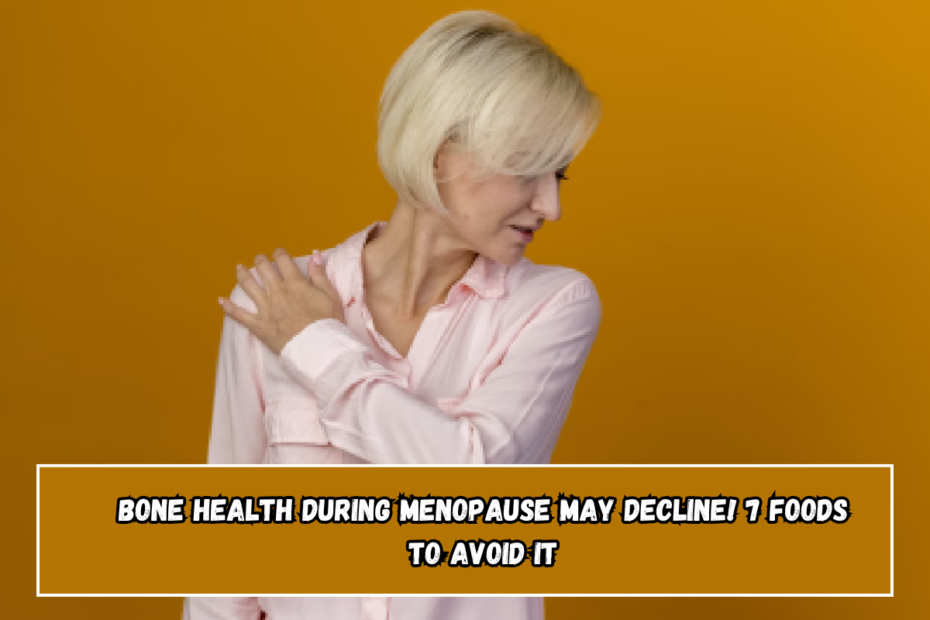Natural menopause causes hormonal changes that can affect bone health. The drop in estrogen can hasten bone loss, increasing the risk of osteoporosis and fractures.
Bone health during menopause may decline! 7 foods to avoid it
Foods that support healthy bones and those that should be avoided are crucial for menopausal bone health. Here are seven foods to avoid to maintain your bone health during this crucial era.
1. High-Sodium Foods
Excess sodium intake increases urinary calcium excretion, which may cause bone loss. Many processed foods, canned soups, and salty snacks are high in sodium. Instead, use fresh ingredients and herbs and spices to flavor your food. Keep your daily salt consumption below 2,300 mg to improve bone health.
2. Coffee
Caffeine can affect calcium absorption, but moderate use is harmless. Research suggests that women who drink more than two cups of coffee may lose more calcium and be at risk for osteoporosis. Limit your caffeine intake from coffee, tea, and sodas and try herbal teas for hydration and health.
3. Sugary Drinks and Foods
High sugar intake can cause weight gain and bone damage. Soft drinks and pastries are high in empty calories and lack nutrition. Inflammation from high sugar levels may also cause bone loss. Choose healthy foods and fruits or naturally sweetened snacks to satiate your sweet desire.
4. Excess Alcohol
Moderate alcohol use may promote bone health, but excessive drinking can harm it. Heavy drinking might impair calcium absorption and bone density, according to research. Most women should limit their alcohol intake to one drink per day. If alcohol use worries you, talk to your doctor.
See more: 6 health benefits of psyllium husk to stay free from constipation
5. Red and Processed Meats
High consumption of red and processed meats can raise body acidity, causing calcium leaching from bones to maintain pH equilibrium. Bacon, sausages, and high-fat beef are high in saturated fats, which can cause inflammation
6. Oxalate-rich foods
Spinach, rhubarb, and beet greens contain oxalates, which limit calcium absorption. These meals are healthy, but to maintain bone health, balance them with calcium-rich foods. Include calcium-rich leafy greens like kale and collard greens instead of high-oxalate ones.
7. Phosphorus-rich foods
High phosphorus intake, especially from processed foods and soda, can damage bones. High phosphorus-to-calcium ratios can cause bone loss because the body draws calcium from bones to balance levels.
